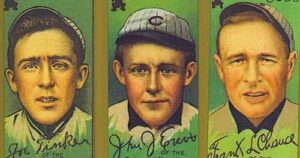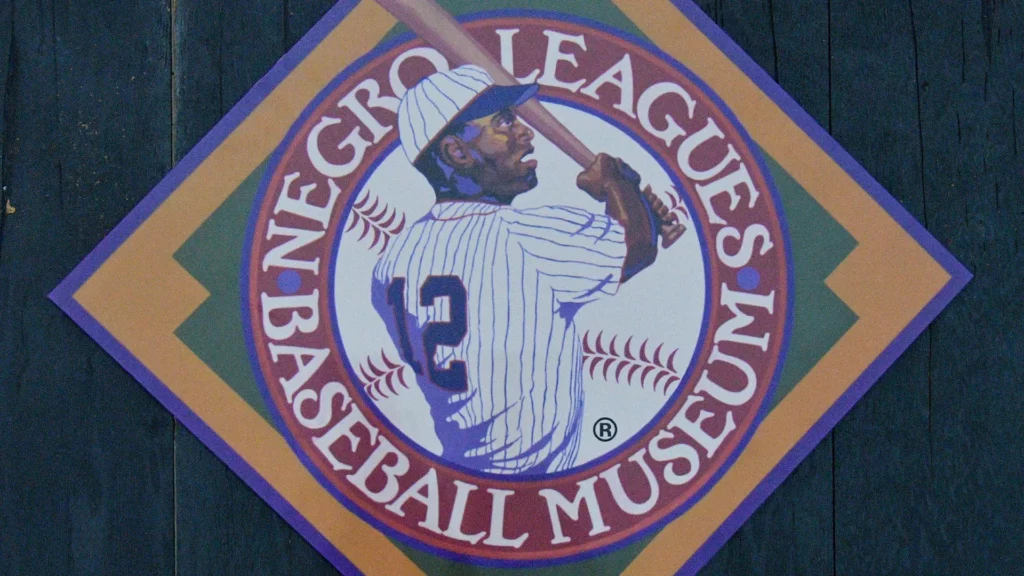From 1906 through 1910- the Chicago Cubs went to four World Series, winning two of them. During those years their shortstop, second base and first basemen were the same people. They were Joe Tinker, Johnny Evers and Frank Chance.
A discouraged Giants fan composed an eight line poem lamenting these three as a double play combination – Tinker to Evers to Chance. The poem turned to a melody and people in Chicago embraced it.
At the end of their career all three players were inducted to the baseball Hall of Fame. This was despite these offensive lifetime statistics for them.
Joe Tinker – .262 31 HRS
Johnny Evers – .270 12 HRs
Frank Chance – .296. 20 HRS
It seems that an eight line poem led to their inductions. One could argue that they made it because of their stellar defense. During those four great seasons, the Cubs turned a total of 491 total double plays. It was good enough for third place, meaning two other teams turned more. There is one more fact. The actual Tinkers to Evers to Chance double play occurred only 54 times in 771 games. In 21 World Series games they had no double plays.
The actual point is that these were good but not star quality players that were inducted to the Hall of Fame because of a poem. At the same time there were many black players in the Negro Leagues with far superior talent to these three. Let’s just look at three. There were many more.
 William S Monroe played second base at the turn of the century. John McGraw, famous manager of the Giants, said that Monroe would have starred in any league. John Beckwith was a shortstop known for his defense with a lifetime batting average of .320. Buck Leonard played first base and was a great hitter. He usually batted in the high .300s and occasionally topped .400. At the same time, he was a feared home run hitter. He played in to his forties and still was among the home run leaders of the Negro Leagues. He had to learn baseball between his two jobs as a shoe shine boy and a rail yard worker. He joined professional baseball at the age of 25.
William S Monroe played second base at the turn of the century. John McGraw, famous manager of the Giants, said that Monroe would have starred in any league. John Beckwith was a shortstop known for his defense with a lifetime batting average of .320. Buck Leonard played first base and was a great hitter. He usually batted in the high .300s and occasionally topped .400. At the same time, he was a feared home run hitter. He played in to his forties and still was among the home run leaders of the Negro Leagues. He had to learn baseball between his two jobs as a shoe shine boy and a rail yard worker. He joined professional baseball at the age of 25.
There were plenty of great players that never got a chance to become a part of baseball history. Their stories go forth as part myth and part truth without any way to confirm the truth. The injustice of hearing their stories while three average players are forever installed in the baseball Hall of Fame because of a poem, points out the situation. At that time the black athlete had no hope of fame, fortune or legacy. They played a game that they loved and went back home to nothing. Loving baseball should require us to recognize these men, their ability, and their perseverance.
